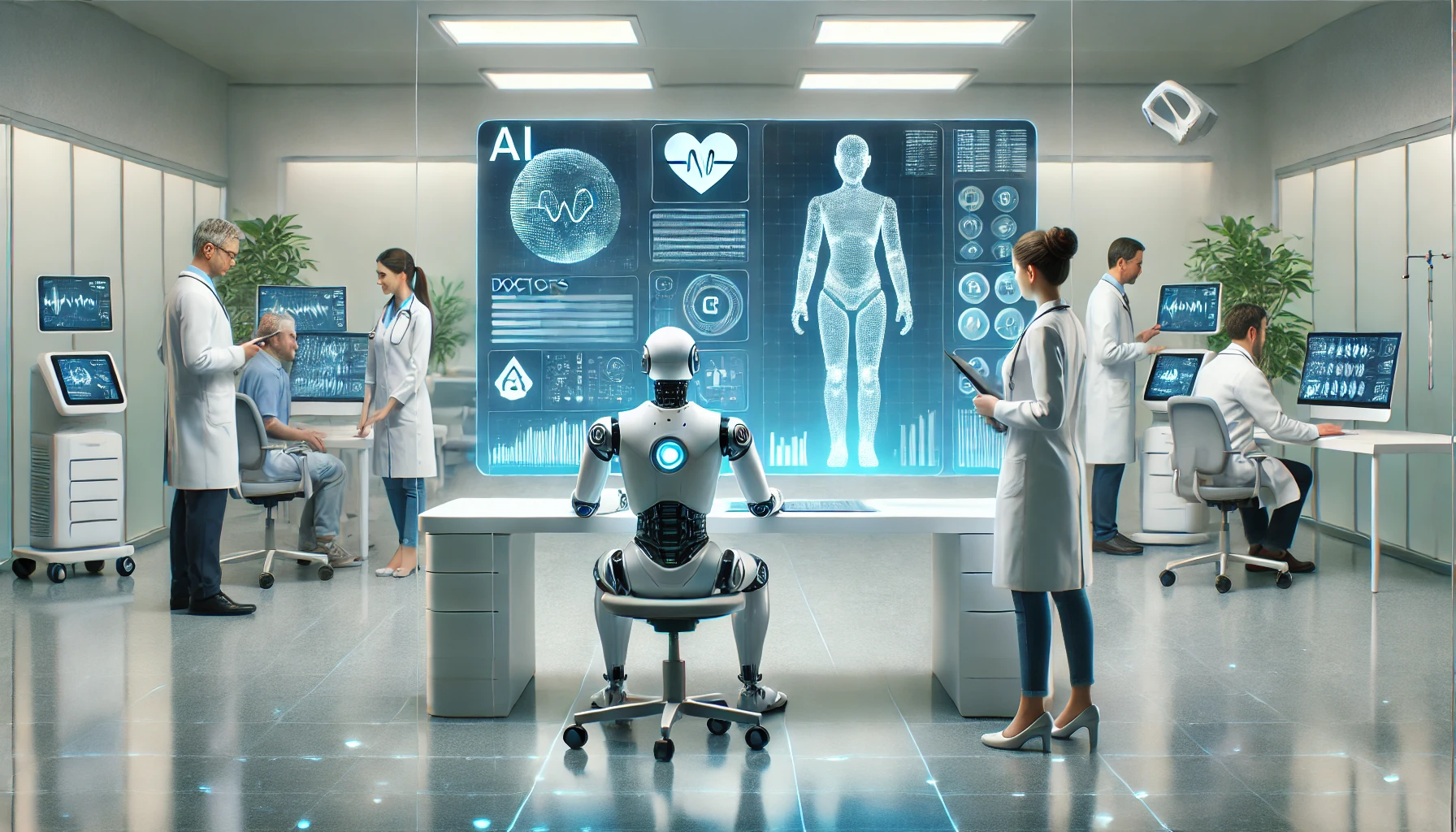In today’s rapidly evolving technological landscape, artificial intelligence (AI) stands at the forefront of innovation, particularly in the healthcare sector. As the CEO of Infuzu, a secure and private aggregate chatbot, I have witnessed firsthand the transformative potential of AI in healthcare workflows. While concerns about accuracy persist, the benefits of AI integration in healthcare vastly outweigh these concerns. Moreover, with a steadfast commitment to privacy and security—bolstered by our HIPAA-compliant solutions—Infuzu is poised to help healthcare providers navigate this new frontier responsibly.

The Unparalleled Benefits of AI in Healthcare Workflows
The integration of AI into healthcare is not just a technological advancement; it’s a paradigm shift that promises to redefine patient care, administrative efficiency, and overall healthcare delivery.
Enhanced Patient Care
AI-powered tools can analyze vast amounts of data to provide personalized treatment plans, predict patient outcomes, and even identify potential health risks before they become critical. This level of insight enables healthcare professionals to make more informed decisions, leading to improved patient outcomes.
Streamlined Administrative Tasks
Administrative burdens are a significant challenge in healthcare. AI chatbots and automation tools can handle routine tasks such as scheduling, billing, and patient inquiries, freeing up valuable time for healthcare staff to focus on patient care.

Data Analysis and Predictive Insights
AI algorithms excel at identifying patterns and trends within complex datasets. In healthcare, this capability translates to better understanding of disease patterns, patient behaviors, and potential public health concerns, allowing for proactive measures and resource allocation.
Operational Efficiency
By optimizing workflows and reducing redundancies, AI can lead to significant cost savings for healthcare institutions. This efficiency not only benefits providers but also enhances the patient experience by reducing wait times and improving service delivery.
Addressing Accuracy Concerns
It’s natural to have reservations about the accuracy of AI systems, especially in a field as critical as healthcare. However, it’s important to note that AI technology is continually improving. Machine learning models become more accurate as they are exposed to more data, and ongoing advancements in algorithms contribute to this progress.
Moreover, AI should be viewed as a tool to augment—not replace—human expertise. When used responsibly, AI can enhance the capabilities of healthcare professionals, providing an additional layer of analysis and support that complements their judgment.
Responsible AI Use: Key Considerations
To fully harness the benefits of AI while mitigating risks, it’s crucial to adopt responsible AI practices. Several key considerations should guide the development and deployment of AI in healthcare.
Fairness and Non-Discrimination
AI systems must be designed to treat all individuals equitably. This involves using diverse and representative training data to prevent biases that could lead to unfair treatment of certain patient groups. Ongoing evaluation is essential to ensure equitable outcomes across diverse populations.
Transparency and Explainability
Understanding how AI systems make decisions fosters trust among users and stakeholders. In healthcare, where decisions can have profound impacts on patient lives, transparency is paramount. Providing clear explanations of AI reasoning helps healthcare professionals make informed decisions and allows for accountability.
Accountability
Organizations deploying AI must establish clear lines of responsibility. This includes holding developers and operators accountable for ethical deployment and having mechanisms in place to address and rectify any harm caused by AI systems.
Privacy and Data Protection
Given that AI relies on large datasets—often containing sensitive personal information—robust data protection measures are non-negotiable. Compliance with regulations like HIPAA ensures that patient privacy is maintained, and techniques such as data anonymization can further protect individual identities.
Robustness and Security
AI systems should be resilient against adversarial attacks and function reliably under various conditions. Rigorous testing and validation are necessary to ensure that AI behaves as intended, even when faced with unexpected inputs or attempts at manipulation.

How Infuzu Ensures Privacy and Security
At Infuzu, we recognize that privacy and security are foundational to responsible AI use in healthcare. Our commitment to these principles is unwavering, and we have implemented comprehensive measures to safeguard patient data and ensure compliance.
HIPAA Compliance
We understand the importance of adhering to the Health Insurance Portability and Accountability Act (HIPAA). Our AI solutions are designed with HIPAA compliance at their core, ensuring that all protected health information (PHI) is handled with the utmost care and in accordance with legal requirements.
Advanced Data Encryption
All data processed by our AI chatbots is encrypted both in transit and at rest. This means that whether data is being sent, received, or stored, it is protected against unauthorized access.
Secure Infrastructure
Our systems are built on secure infrastructure that incorporates the latest security protocols. Regular security assessments and updates are conducted to address potential vulnerabilities proactively.
Access Controls and Authentication
We implement strict access controls to ensure that only authorized personnel can access sensitive data. Multi-factor authentication and role-based access help prevent unauthorized access and maintain data integrity.
Continuous Monitoring and Compliance Audits
Infuzu conducts ongoing monitoring of our systems to detect and address any security threats promptly. Regular compliance audits ensure that we remain aligned with HIPAA requirements and other relevant regulations.
The Path Forward: Embracing AI Responsibly
The responsible integration of AI into healthcare workflows is not just about leveraging technology—it’s about enhancing human capabilities, improving patient outcomes, and operating with ethical integrity.
Human-Centric Design
By focusing on human needs and values, AI systems can serve as tools for empowerment rather than control. Designing AI with a human-centric approach ensures that technology enhances, rather than detracts from, the patient-provider relationship.
Collaboration and Education
Developing responsible AI requires collaboration across sectors, including academia, industry, government, and civil society. At Infuzu, we are committed to engaging with stakeholders to promote understanding, address misconceptions, and encourage informed discourse about AI’s benefits and risks.
Continuous Improvement
AI technology is not static. Continuous monitoring, evaluation, and improvement are necessary to ensure that AI systems remain effective and aligned with ethical standards. By staying committed to these practices, we can adapt to changing contexts and maintain the integrity of our AI solutions.
Conclusion
The integration of AI into healthcare is an exciting development that holds immense promise for improving patient care and operational efficiency. While accuracy concerns are valid, they are outweighed by the significant benefits that AI brings to healthcare workflows. By committing to responsible AI practices—focusing on privacy, security, and ethical considerations—we can harness the full potential of AI while mitigating risks.
At Infuzu, we are dedicated to the responsible deployment of AI in healthcare. Our HIPAA-compliant solutions ensure that privacy and security are never compromised, allowing healthcare providers to embrace AI confidently.
We invite you to join us on this journey toward a future where AI enhances healthcare delivery, improves patient outcomes, and operates with the highest ethical standards. Together, we can make healthcare more efficient, effective, and accessible for all.





